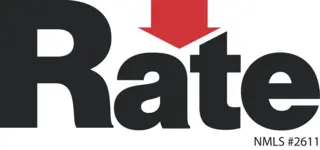HELOC vs. Home Equity Loan: Compare Benefits, Interest Rates and More
If your home’s market value exceeds the debt you owe on your property, you could take advantage of your home equity and borrow against it.
As a homeowner, you have two main options: a home equity loan and a home equity line of credit (HELOC), both of which are types of second mortgages that work a little differently than typical home loans.
Before you borrow against your home equity, it’s crucial to understand what, exactly, HELOCs and home equity loans are, how they work, and which might be better for your situation.
Table of contents
- What is a home equity loan?
- How home equity loans work
- What is a HELOC?
- How HELOCs work
- Key differences between HELOCs and home equity loans
- How to get a home equity loan or HELOC
- Benefits of a HELOC vs. home equity loan
- HELOC vs. home equity loan FAQs
- Summary of Money’s HELOC vs. home equity loan guide
What is a home equity loan?
A home equity loan allows you to borrow against some of the equity you have in your home. Equity in your home is the difference between what you owe on your mortgage and how much your home is worth; essentially how much of your home you own debt-free. When you take out a home equity loan, a bank or credit union provides you with a lump sum of money upon closing, and you can spend it on home improvements, medical bills, existing debt repayment or other purposes. Like a traditional mortgage, a home equity loan is a secured debt where the lender uses the associated property as collateral.
How home equity loans work
When you ask a lender for a home equity loan, you can specify the amount you want to borrow, but a common limit is 85% of your home’s available equity. You can subtract your current mortgage balance from the current appraised value of your home to determine the amount of equity available.
If you lack enough equity for your desired loan amount, you may need to wait and look into how to build equity in a home. Additionally, your financial situation must show the lender that you can afford your home equity loan payment.
Home equity loans usually have a maximum term of 30 years, during which you make equal monthly installments that include the interest and principal. These loans typically have interest rates that stay the same over the entire term, and factors such as the loan amount, term, loan-to-value ratio, and your creditworthiness affect the rate. Like with your first mortgage or when refinancing, you may have to pay origination fees and closing costs when you take out the loan.
Until you fully pay off the home equity loan, the lender could begin the foreclosure process if you fall behind on payments and don't work out some arrangement. This risk means you should choose your loan amount carefully and make your monthly payments on time.
What is a HELOC (home equity line of credit)?
Instead of providing you with a one-time sum of cash, a HELOC is a credit line that you can readily access during a specified draw period. HELOCs are similar to a credit card in the sense that paying back what you borrow will replenish the available credit. Like with a home equity loan, you use a HELOC to borrow funds based on your home’s equity and your property serves as collateral.
Homeowners often use HELOCs for home improvement projects, debt consolidation, college expenses and other similar costs. Some may prefer the flexibility of HELOC for home renovations in particular because these project costs may be difficult to estimate upfront.
How HELOCs work
While policies vary, lenders often allow a HELOC limit of up to 85% of your home’s equity. The credit limit ultimately depends on your financial situation. Note that since you don’t get this money in a lump sum, you might not end up actually using all your available credit. In that case, you can simply use what credit you need and pay interest only on what you borrow.
When you get a HELOC, you may pay upfront fees and closing costs. You then enter a draw period that typically lasts 10 years. During that time, you can typically use a card or check to withdraw from the HELOC, subject to terms such as minimum withdrawal amounts.
While you have access to the HELOC funds, the lender requires at least a partial payment on the borrowed amount during this period. This may include interest-only payments or a set minimum amount. Lenders most often offer variable HELOC rates, so the payment amount can change as rates do.
Once the draw period ends, a repayment period of around 10 to 15 years begins, and you’ll make larger monthly payments to cover the principal and interest. The lender could also ask for a large lump sum, called a balloon payment.
You’ll need to pay the HELOC amount as agreed to avoid default and potential foreclosure. After payoff, you may have an option for HELOC renewal, but you could incur a maintenance fee for this.
Key differences between HELOCs and home equity loans
Either a HELOC or home equity loan can provide the funding you need as long as you qualify. However, they differ in how the loan amounts, interest rates and repayment processes work.
Loan amounts
While the home equity percentage you can borrow against is similar, HELOCs and home equity loans provide the funds in different ways. You get the entire loan amount at once with a home equity loan, and you make monthly payments based on that whole amount. On the other hand, a HELOC has a maximum limit you can borrow and the amount you have to repay depends on how much you ultimately withdraw from the line.
Fixed and variable interest rates
Home equity loans usually have fixed interest rates that allow for steady monthly payments over the life of the loan. These types of loans may have higher interest rates than HELOCs. While getting fixed HELOC rates is possible, most lenders offer variable-rate HELOCs where caps on rate changes apply. The variability makes HELOCs riskier since you could have a low interest rate at first but then see it go up if the market changes. Keep in mind that these increases could lead to unaffordable monthly payments.
Repayment schedule
With a home equity loan, you’ll make full monthly payments during the entire term. A HELOC, on the other hand, requires partial payments during the draw period and larger monthly payments — including sometimes a balloon payment at the end of the loan term — during the repayment period. To compare how your monthly payments could look, consider using a home equity loan calculator or HELOC payment calculator.
How to get a home equity loan or HELOC
To get a home equity loan or HELOC that fits your needs, start researching potential lenders that offer competitive rates, good customer service and low closing costs. You should then check a prospective lender’s home equity loan requirements to make sure you can qualify.
You’ll need sufficient home equity to take out the loan. Lenders also closely look at your personal finances, considering factors such as credit score and income. You’ll want to make sure your debt-to-income ratio does not exceed 43% (though be aware that many lenders will prefer a lower ratio). If you have bad credit, you will most likely pay a higher interest rate and/or be required to get a cosigner.
Ask the lender about prequalification so you can see if you meet borrowing requirements before you submit an official application. This involves providing property, loan and personal information. Once you officially apply, the lender will check your credit and request documents verifying your income and various property details. The lender may also request a property appraisal before you can close on the loan, pay any closing costs and get the funds.
Benefits of HELOC vs. home equity loan
Besides letting you tap into your home equity, these financing products offer different advantages. Let’s take a look at some of them.
HELOC benefits
HELOC loans give you more borrowing flexibility than home equity loans. Since you have a lengthy draw period, you can access just the amount of money you need, right when you need it. In other words, this option could help you reduce the chances of borrowing too much.
The repayment process for a HELOC comes with advantages as well. You may find it easier to budget for the smaller payments during the drawing period. During that time, you can also prepare for the larger payments that you’ll make during the repayment period.
HELOCs may have lower interest rates than home equity loans and unsecured credit options like credit cards. Moreover, if you use the HELOC’s funds on qualified home renovations, the IRS may even let you deduct the interest paid on your tax return.
Home equity loan benefits
If you need all your money at once, you may prefer the lump sum that a home equity loan provides and the predictability that comes from it. The best home equity loans feature fixed interest rates and stable payment amounts. Your budgeting becomes easier when you know how much you have to pay each month.
Although home equity loans can have higher interest rates than HELOCs, you’ll typically still save money over alternatives like credit cards. (If you’re struggling with high-interest credit card debt already, you may be able to pay it down using a home equity loan). Additionally, the fixed rate means you won’t have to worry about rising interest rates increasing the cost of the debt. The federal tax deduction for interest paid applies to home equity loans as well.
HELOC vs. home equity loan FAQs
Which is better, HELOC or home equity loan?
Can you convert a HELOC to a home equity loan?
How many HELOCs and home equity loans can I have?
Summary of Money's HELOC vs. home equity loan guide
Whether you want to consolidate debt or make a major purchase, home equity loans and HELOCs can let you access funds from the equity you have already built in your home.
You can think of a HELOC sort of like a credit card, since it’s revolving credit that usually has changing interest rates. A home equity loan is more akin to a personal loan that has a fixed rate and an upfront loan balance. In both cases, interest rates on the home loan products are usually lower than personal loans and credit cards since you’re using your home as collateral. And they may qualify for tax benefits not available for those other types of financing.
Considering when and how you want to access the funds and whether you prefer fixed monthly payments or variable ones will help you decide between a HELOC and a home equity loan. Make sure to compare current HELOC and home equity loan rates and calculate potential payment amounts to see what makes financial sense to you.







